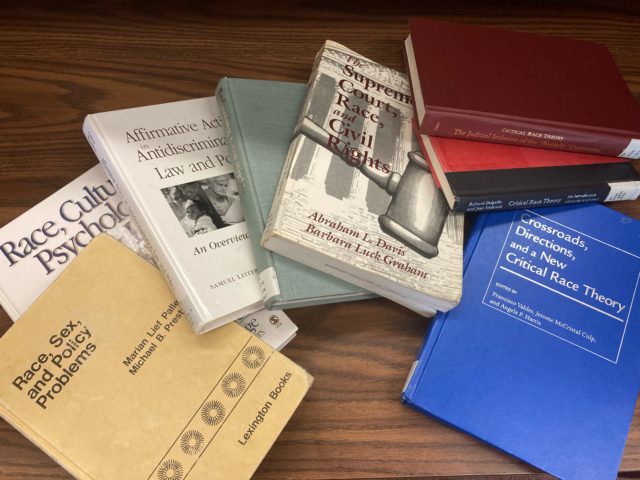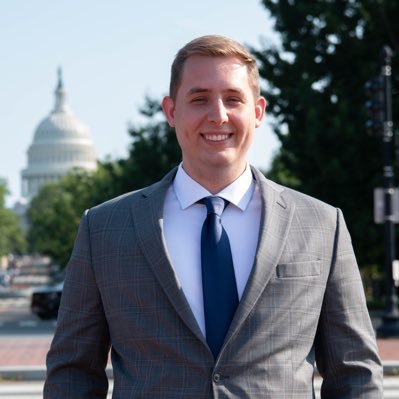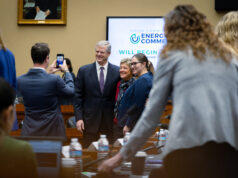

WASHINGTON — U.S. Rep. Tom Cole is using more caution on a bill he co-sponsored in March about civics education since the Biden administration announced grant priorities for the bill in late April.
“The best way to preserve America’s unique form of governance is through civics education,” said Cole (OK-4).
The Civics Secures Democracy Act of 2021 was introduced to the House by Democrat Rep. Rose DeLauro (CT-3) on March 11 with bipartisan support. Those who supported the bill, including Cole, a Republican from Moore, have made sure that it will not mandate a national curriculum in any way. The bill is designed to promote civics education across the nation after its decline over several years by creating various grants that will go towards the subject.
This story was reported by Gaylord News, a Washington reporting project of the Gaylord College of Journalism and Mass Communication at the University of Oklahoma.
“Only a quarter of school children have demonstrated proficiency in civics according to the National Assessment of Educational Progress,” said Cole in a letter to Education Secretary Miguel Cardona.
Cole was the first co-sponsor of the bill, but after a notice from the Federal Register, the official journal of the federal government, on grant priorities from the Biden administration, he said he is being more cautious. Cole thinks that while the notice on grant priorities and the civics bill do not intersect, they introduce partisan politics, including critical race theory and the 1619 project into a bipartisan issue. The Federal Register received more than 30,000 comments for and against the priorities.
In a letter to Cole and Texas Sen. John Cornyn, the Republican in the Senate who signed onto the bill, the National Association of Scholars, a conservative education advocacy group, asked the Republicans to reconsider their support.
The 2,600-member scholars association said it did not comment on the Federal Register notice, but the letter to the congressmen addresses it and says the letter is aimed not at the Biden administration’s proposal, but at the bill itself. The association said the bill was “an effort to smuggle progressive action civics into American K-12 classrooms under the guise of bipartisanship.”
Cole said that after the notice on grant priorities was published in the Federal Register in April, he received a “blizzard of bipartisan response” on the matter. While Cole has not withdrawn his support of the bill, he asked Cardona to review and even withdraw the Federal Register proposal on grant priorities.
“[The grant proposal] is effectively, in my opinion, jeopardizing civics as a bipartisan priority and potentially jeopardizing the legislation,” Cole said during a subcommittee meeting with Cardona.
Cardona responded to Cole.
“We have a divided country, but our education system is going to unite us,” he said. “The goal here is to build community, have students engage in their learning and grow together.”
Both Cole and Cardona believe curriculum should stay in the hands of states and communities. Cardona said the Federal Register notice is unrelated to the topic and is solely to “provide parameters for grants to be submitted.” He says he wants to make sure certain students are “seen” in the curriculum taught in their schools.
The Civics Secures Democracy Act would provide up to $1 billion dollars annually, with $150 million of that going to higher education, to fund education projects in civics. The grant’s priorities would be toward “projects that incorporate diverse perspectives into teaching and learning.” The Biden administration also cites the New York Times’ 1619 project as an example of the federal grant priority.
Cole said that while there is no required curriculum, educators in line for grants might be inclined to teach subjects such as critical race theory or the 1619 project. Cole added that states that do not adhere to that curriculum could lose their chances at millions of dollars in financial aid for civics education. He said critical race theory and the 1619 project have flawed perspectives on history.
“To cite this project as accurate historical analysis is to do damage to history education in American schools because of its well-documented errors,” Cole said in a letter to Cardona.
In its most basic form, critical race theory suggests that systematic oppression still exists and that white people benefit from the system that people of color are harmed by.
Many attribute the newfound vigor to Times’ 1619 project, which says the nation’s history began when slavery started in 1619 instead of later during the American Revolution.
“In reducing the American Revolution to little more than a slaveholders’ rebellion, this project swats aside the weight of historical evidence and primary sources that run counter to this claim,” said Cole, a former history professor.






















